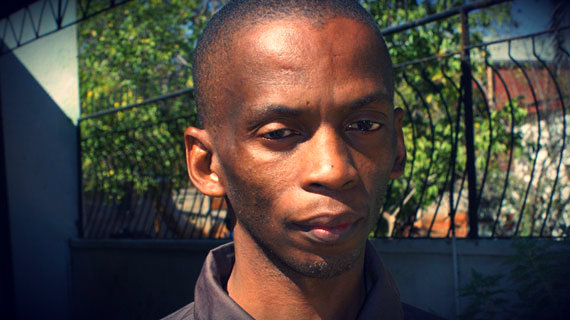
I have no qualms about the broader intents and philosophy of black economic empowerment.
-Dumisani Nkomo
However, such a policy has the potential of actually creating new problems instead of solving old ones.
While indigenisation and empowerment seeks to correct historic wrongs and involve the previously disadvantaged black majority, it could actually result in the distribution of poverty instead of wealth.
At times hunger forces people to kill the cow that gives them milk on a daily basis and for a whole week people may revel and feast on meat, but in the long term they will run out of meat and pray for the return of the cow.
In the same vein, if the indigenisation and empowerment programme is implemented callously and carelessly it will have genocidal effects on the economy resulting in increased poverty instead of broader economic growth, employment creation and improved standards of living.
I would like to argue that there is something fundamentally wrong with any economic or socioeconomic model that is predicated on transferring wealth without due emphasis on creation of wealth.
The Zanu PF election manifesto states that a Zanu PF would target 1 138 companies in 14 sectors for indigenisation in the process unlocking value of $7,3 million.
- Chamisa under fire over US$120K donation
- Mavhunga puts DeMbare into Chibuku quarterfinals
- Pension funds bet on Cabora Bassa oilfields
- Councils defy govt fire tender directive
Keep Reading
I would like to argue that merely focusing on transferring wealth from one group to another would be suicidal for the economy in a number of respects. We have to grow our national cake before deciding to slice it up among ourselves especially at a time when the cake is shrinking in size and value.
Do we not believe that we can make it as black people without grabbing from others?
Strive Masiyiwa, Nigel Chanakira, Mthuli Ncube and Trevor Ncube are some of our very own Zimbabwean businesspersons who have proved that blacks can successfully create wealth and run successful companies without having to grab from some white businessman somewhere.
Sadly some of these great entrepreneurs have been declared unwanted in Zimbabwe when they should be living examples of how black Zimbabweans working together with Zimbabweans of various racial groups can make it.
There are just too many people who want to take over farms, mines and companies without adding any value to the entities, the economy and the country.
We need wealth creators that will create employment and opportunities for other Zimbabweans not wealth accumulators for whom owning a company is a status symbol not a vehicle for empowerment, creating wealth and jobs.
Corruption, cronyism and patronage networks are now embedded institutions in our national ethos and the indigenisation and empowerment process is likely to deepen and accentuate these cancerous activities which have made the economy similar to the ruins on the Zanu PF logo.
There are valuable lessons from South Africa where the ANC national chairperson and struggle icon Baleka Mbethe is facing corruption allegations over a company that was targeted for Black Economic Empowerment.
There are also cases of connected young South Africans who have never worked in their lives, but are millionaires because of patronage networks which have produced a generation of “tenderpreuners” who win tenders without the capacity to deliver services or goods.
I hope minister Francis Nhema institutes an audit on who has benefited from the current indigenisation process lest we find it is a tiny “coterie” or “criminal cabal” masquerading as champions of black economic empowerment secretly lining their pockets while everybody else wallows in grinding poverty.
George Orwell describes this aptly in his prophetic classic Animal Farm where the pigs (ruling class) set aside for themselves the milk and apples.
Propaganda chief Squealer tells the other animals “comrades we are eating those apples and drinking that milk for your own sake, comrades. Imagine If we failed to eat those apples and to drink that milk, Jones would come back”.
The past 10 years have seen a new class of rich young blacks many of whom neither “toil nor spin”, but whose only claim to wealth is patronage and links with the ruling elite. Those are eating and drinking on behalf of the masses.
While mass participation in the economy is noble, it is largely mythical as not everybody can own or run a business.
This is not racial but universal as the trend in advanced economies with high economic levels is that most people are happy working and earning a salary.
This a simple act which has nothing to do with being black or white.
For most in Zimbabwe what we call businesses are actually survival strategies or coping mechanisms to survive in this harsh economic environment Many of these people could be happily employed if the economic environment was conducive.
Of course there are many people who can turn their small businesses into thriving enterprises, but surely to expect an entire population to own and run businesses is simply delusional and is the highest form of self delusion and fantasy Mayibuye!
Dumisani Nkomo is an activist and opinion leader










